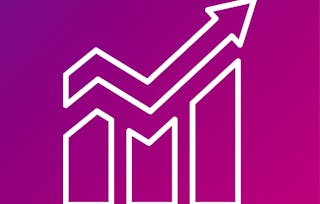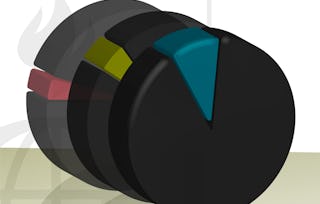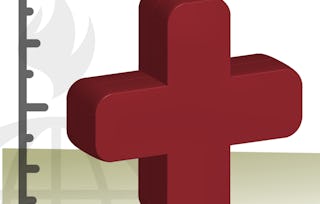Biostatistics is the application of statistical reasoning to the life sciences, and it's the key to unlocking the data gathered by researchers and the evidence presented in the scientific public health literature. In this course, you'll extend simple regression to the prediction of a single outcome of interest on the basis of multiple variables. Along the way, you'll be introduced to a variety of methods, and you'll practice interpreting data and performing calculations on real data from published studies. Topics include multiple logistic regression, the Spline approach, confidence intervals, p-values, multiple Cox regression, adjustment, and effect modification.

Ends soon: Gain next-level skills with Coursera Plus for $199 (regularly $399). Save now.

Multiple Regression Analysis in Public Health
This course is part of Biostatistics in Public Health Specialization

Instructor: John McGready, PhD, MS
17,484 already enrolled
Included with
(320 reviews)
Recommended experience
What you'll learn
Practice multiple regression methods to determine relationships between an outcome and multiple predictors
Use the Spline approach for non-linear relationships with continuous predictors
Perform calculations with multiple predictor variables
Skills you'll gain
Details to know

Add to your LinkedIn profile
7 assignments
See how employees at top companies are mastering in-demand skills

Build your subject-matter expertise
- Learn new concepts from industry experts
- Gain a foundational understanding of a subject or tool
- Develop job-relevant skills with hands-on projects
- Earn a shareable career certificate

There are 4 modules in this course
Within this module, an overview of multiple regression will be provided. Additionally, examples and applications will be examined. A practice quiz is provided to test your knowledge before completing the graded quiz.
What's included
9 videos2 readings2 assignments
Module two covers examples of multiple logistic regression, basics of model estimates, and a discussion of effect modification. In addition to lectures, you will also be completing a practice quiz and graded quiz.
What's included
8 videos2 readings2 assignments
The last module for this class focuses on multiple Cox regression, the “Linearity” assumption, examples, and applications. You will complete a practice quiz, graded quiz, and project.
What's included
5 videos2 readings2 assignments
During this module, you get the chance to demonstrate what you've learned by putting yourself in the shoes of biostatistical consultant on two different studies, one about self-administration of injectable contraception and one about medical appointment scheduling in Brazil. The two research teams have asked you to help them interpret previously published results in order to inform the planning of their own studies. If you've already taken other courses in this specialization, then this scenario will be familiar.
What's included
1 reading1 assignment
Earn a career certificate
Add this credential to your LinkedIn profile, resume, or CV. Share it on social media and in your performance review.
Instructor

Offered by
Explore more from Health Informatics
 Status: Free Trial
Status: Free TrialJohns Hopkins University
 Status: Free Trial
Status: Free TrialImperial College London
 Status: Free Trial
Status: Free TrialJohns Hopkins University
 Status: Free Trial
Status: Free TrialJohns Hopkins University
Why people choose Coursera for their career




Learner reviews
320 reviews
- 5 stars
80.62%
- 4 stars
14.37%
- 3 stars
4.68%
- 2 stars
0%
- 1 star
0.31%
Showing 3 of 320
Reviewed on May 27, 2023
The course simplifies important concepts in understanding biostatistics using detailed and explanations and examples
Reviewed on Apr 21, 2023
Recommended for beginners in the field. Instructor John McGready presents the otherwise complex concepts of Biostatistics straightforwardly, with many examples and a perfect pace.
Reviewed on Jul 1, 2020
one of the finest courses on biostatistics, in order to get refreshed with the core concepts and applications!

Open new doors with Coursera Plus
Unlimited access to 10,000+ world-class courses, hands-on projects, and job-ready certificate programs - all included in your subscription
Advance your career with an online degree
Earn a degree from world-class universities - 100% online
Join over 3,400 global companies that choose Coursera for Business
Upskill your employees to excel in the digital economy
Frequently asked questions
To access the course materials, assignments and to earn a Certificate, you will need to purchase the Certificate experience when you enroll in a course. You can try a Free Trial instead, or apply for Financial Aid. The course may offer 'Full Course, No Certificate' instead. This option lets you see all course materials, submit required assessments, and get a final grade. This also means that you will not be able to purchase a Certificate experience.
When you enroll in the course, you get access to all of the courses in the Specialization, and you earn a certificate when you complete the work. Your electronic Certificate will be added to your Accomplishments page - from there, you can print your Certificate or add it to your LinkedIn profile.
Yes. In select learning programs, you can apply for financial aid or a scholarship if you can’t afford the enrollment fee. If fin aid or scholarship is available for your learning program selection, you’ll find a link to apply on the description page.
More questions
Financial aid available,

